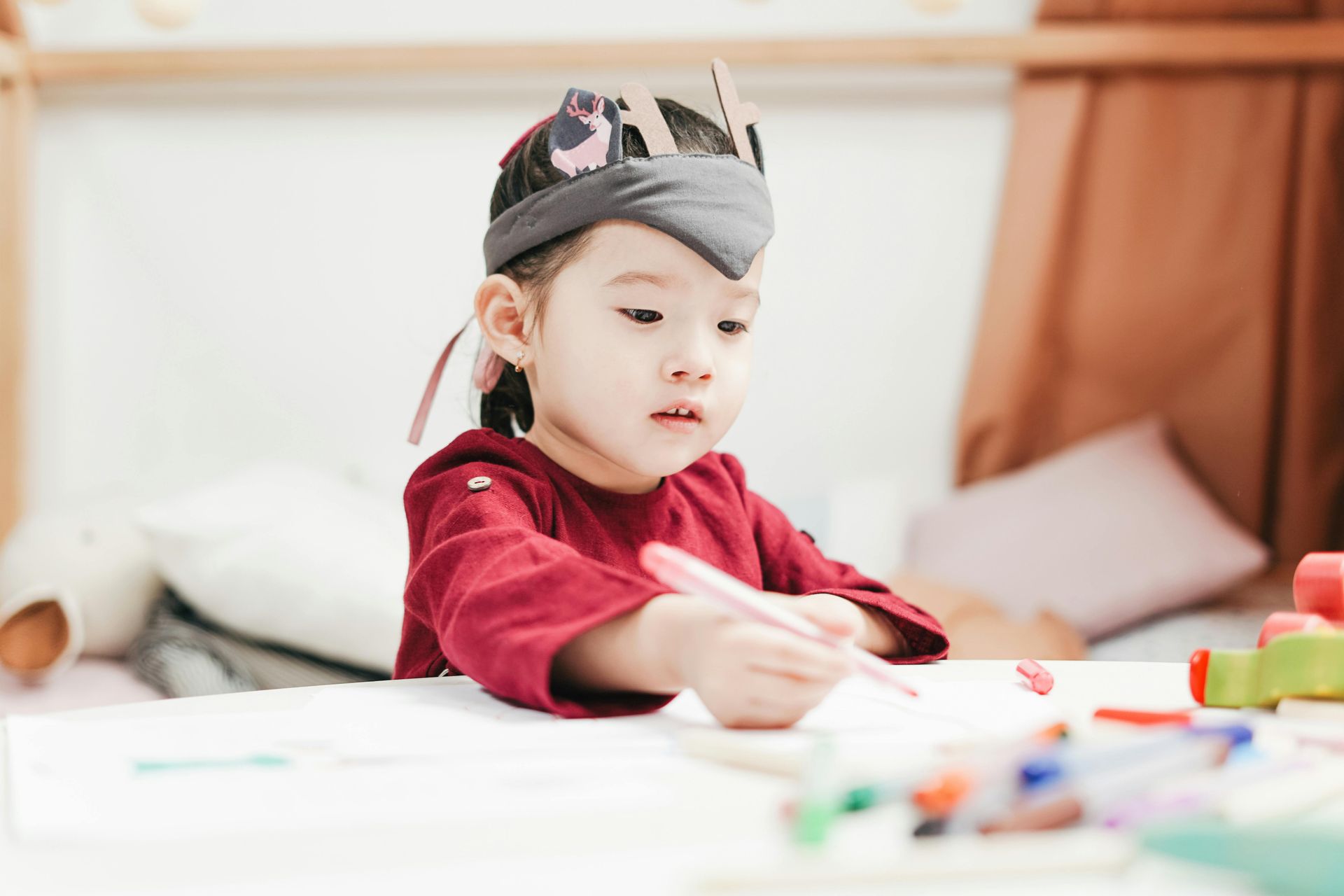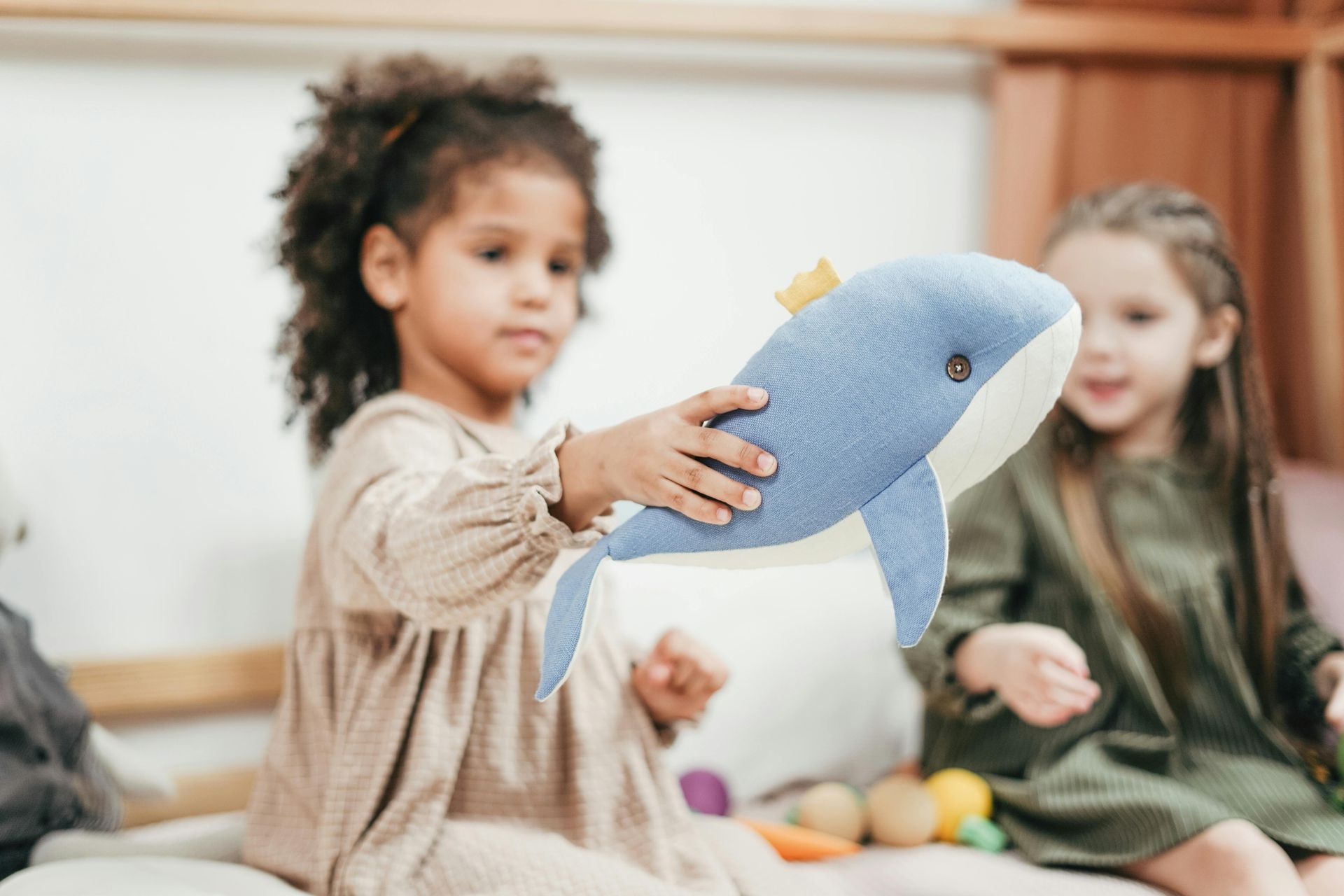Creating a Literacy-Rich Environment for Preschoolers at Welbourne Avenue Nursery
In a world filled with text, early literacy is a gift we begin nurturing long before formal reading begins. At Welbourne Avenue Nursery, we cultivate a love of language and storytelling from the very start, building a literacy-rich environment where books, conversations, and creativity are everywhere.
Reading Aloud with Purpose
Reading aloud is one of the most powerful tools we use to develop language and literacy skills. Our educators select books that are age-appropriate, diverse, and engaging. They read with expression, ask open-ended questions, and encourage children to predict, imagine, and connect.
Daily story-time is a treasured part of our routine. It sparks curiosity, builds comprehension, and deepens the bond between child and educator. Children don’t just listen — they interact, comment, and participate.
Print-Rich Classrooms
Every corner of our classrooms is filled with print — not just books, but labels, signs, word walls, and child-created writing. Children are constantly exposed to letters, numbers, and meaningful print that helps them connect spoken and written language.
Our learning centers often include:
- Letter tiles for name recognition
- Magnetic boards for letter exploration
- Books in cozy nooks and theme corners
- Journals and writing materials for drawing and scribbling
This kind of exposure helps children internalize early concepts of print, such as reading left to right, understanding that print carries meaning, and recognizing familiar words.
Conversations as Literacy
Talking with children is just as important as reading to them. At Welbourne, we engage children in rich, responsive conversations throughout the day. We listen closely, expand on their ideas, and introduce new vocabulary in meaningful contexts.
Whether during play, meals, or group time, we model expressive language, encourage storytelling, and invite children to share their thoughts. These conversations strengthen language development and help children develop confidence in their voice.
Encouraging Pre-Writing Skills
Before children can write, they need to develop fine motor control, hand strength, and an understanding of symbols. We support this through playful, hands-on activities that build foundational writing skills:
- Scribbling with crayons and markers
- Tracing letters in sand or finger paint
- Using tweezers, play dough, and lacing cards
- Drawing shapes and lines during art
These activities build muscle memory and hand-eye coordination while helping children develop comfort with writing tools.
Storytelling and Imagination
We encourage children to tell their own stories through dramatic play, drawing, and oral language. These creative expressions help children understand narrative structure, sequencing, and descriptive language.
Teachers act as scribes for young children, writing down their dictated stories or ideas. This validates their voice and shows them that their words matter.
Family Engagement in Literacy
Parents and careers are key partners in developing early literacy. We share book lists, recommend storytelling activities, and encourage families to read together at home. We host literacy nights, book swaps, and storytelling events that bring our community together through the joy of reading.











